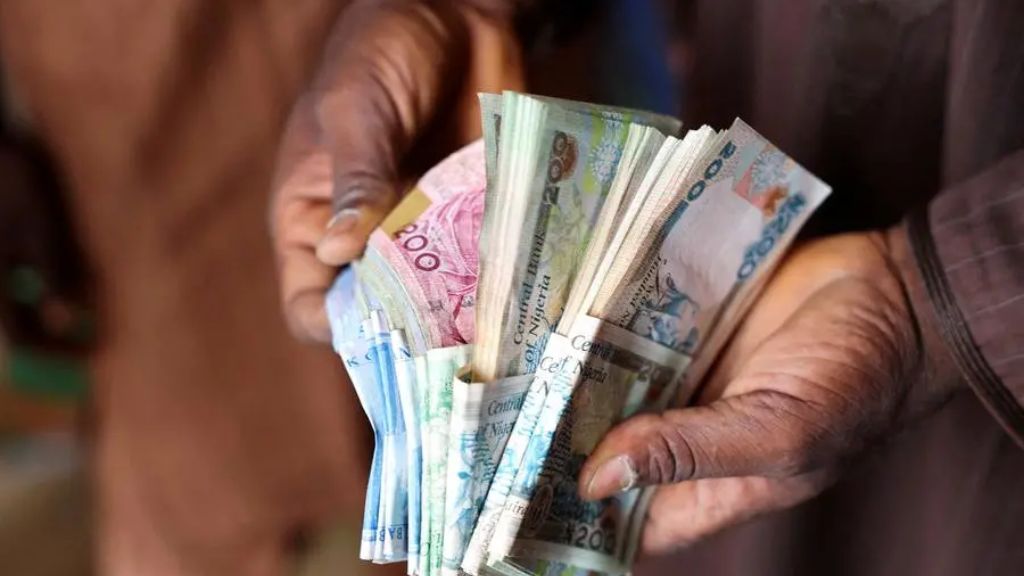Buoyed by the urgent need to strengthen the value of the naira, Senator Ned Munir Nwoko, representing Delta North senatorial district, recently proposed a bill that will prohibit the payment of salaries, transactions and payments in foreign currencies in Nigeria.
The bill, which has passed the first reading in the Senate, is entitled “A Bill for an Act to Alter the Central Bank of Nigeria Act, 2007, No.7, to prohibit the Use of Foreign Currencies for Remunerations and for Other Related Matters.”
Other features of the proposed bill include mandatory naira payments for exports, financial system transition to naira, elimination of the parallel market, support for local manufacturers, the reform of foreign reserve practices and adoption of comprehensive policies.
Senator Nwoko’s bill couldn’t have come at a better time. At a time when some affluent Nigerians spray the dollar at parties and prefer using the dollar for payments or other transactions, Senator Nwoko’s bill becomes auspicious. The way things are going, the gradual adoption of the dollar as an unofficial national currency by some Nigerians will, over time, undermine the value of the naira and by extension our economic sovereignty.
No doubt, strengthening the naira through the bill and ensuring our economic sovereignty has obviously become imperative. It is instructive that Senator Nwoko wants Nigerians to have confidence in our national currency and be proud of it. Preferring the use of the dollar or any other foreign currency in our country does not show patriotism and such practice undermines our sovereignty.
We believe that Nwoko’s timely intervention is bold and patriotic and must be encouraged. The bill will, among other things, ensure that all workers in the country, including expatriates, are remunerated in naira. The bill will also bolster confidence in the local currency and help to reclaim Nigeria’s economic independence by prioritizing the naira for both domestic and international transactions. It will also strengthen the value of the naira and reduce the high demand for dollars at home. The bill will also foster economic equity by standardising salary payments in naira as well as ensuring fair treatment for both local and expatriate workers.
Using the naira for every transaction will support the manufacturing sector with accessible credit facilities, encourage local production and reduce dependency on imports. It will move us away from the colonial legacy of foreign currency reliance, foster national pride and a renewed commitment to self-reliance. Additionally, the bill will help to build a diversified and resilient economy through a harmonious blend of monetary and fiscal policies.
Morocco and other countries have amply demonstrated that Nwoko’s proposal is doable and worth given a trial. The Moroccan Dirham has maintained remarkable stability against major currencies for over 35 years. Senator Nwoko pointed this out, saying: “Morocco’s policy of prohibiting foreign currencies for domestic transactions has ensured that its economy operates exclusively in Dirhams, preserving the currency’s value despite the country’s reliance on tourism.”
The senator believes that “Nigeria, with its vast natural resources and dynamic population, stands in an even stronger position to replicate and surpass Morocco’s achievements. This, however, requires a paradigm shift in how Nigerians perceive and utilise their currency, supported by robust policy measures.”
He also stated that transitioning domiciliary account balances into naira will be natural and voluntary process for account holders. “As the naira strengthens under this policy, citizens will see diminished need for holding foreign currency, leading to a seamless transition,” he explained.
We urge the Senate to expeditiously pass the bill, in view of its significance to the economy. When this happens, the naira will be positioned as the central currency for all financial operations in the country, which will reinforce its dominance in the economy. It will also abolish the informal currency market, which undermines the formal economy through unethical practices, including round-tripping by banks.
With a stronger naira, banks will have confidence to provide loans to businesses at affordable rates. This will equally stimulate industrialisation and economic growth.

